In response to the Referendum results, UOW’s Indigenous Strategy Unit (ISU) emerged with a restored focus. The word ‘reconciliation’ feels profoundly empty and extractive for our people. The impacts of the result itself, the process, and the lies propagated along the way speak to a need to focus on healing and truth telling. In 2024, UOW will be developing a Healing and Recognition Track (HART) plan.
Healing and Recognition Track (HART)
Launch of UOW's Healing and Recognition Track
UOW Launches Inaugural HART plan, today at 12pm! Register now to attend the HART launch and to engage in our post-launch HART activities.
View the plan [PDF]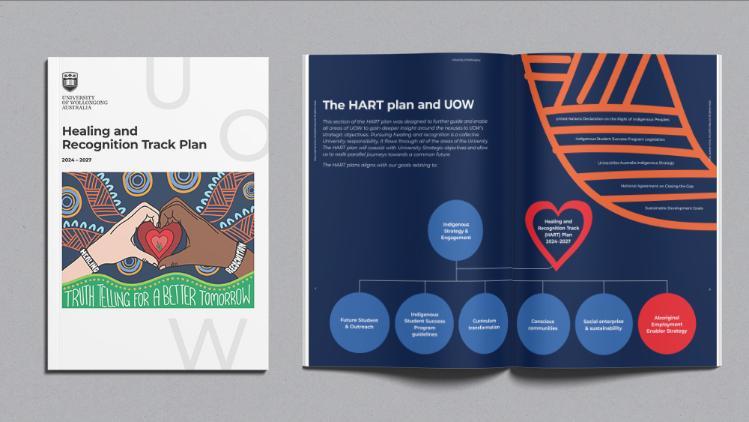
UOW commenced our Reconciliation Action Plan (RAP) (PDF) journey in 2019, with the launch of our inaugural Innovate RAP.
Due to the confinements of the pandemic, UOW decided to continue on our Innovate RAP journey and in March 2022 we launched our second Innovate RAP.
With our current RAP expiring in March 2024, we were provided with an opportunity to re-evaluate our Indigenous Advancement journey here at The University of Wollongong (UOW).
In 2024, the Indigenous Strategy Unit (ISU) started our journey of trust, healing and working to put things right ways.
Our vision is a reconciled, united Australia where Aboriginal and Torres Strait Islander peoples are positioned as the knowledge holders of history, Country and culture. We will create teaching, learning and working spaces that are based on trust and respect; are free from bias and discrimination; and value our Aboriginal and Torres Strait Islander staff and students.
A dramatic and significant shift has occurred at UOW that shines a light on our institution’s evolving commitment to addressing the plight of all Aboriginal and Torres Strait Islander peoples through truth-telling, cultural safety, and healing.
The UOW leadership team are committed to walking the reconciliation journey as allies with our Aboriginal and Torres Strait Islander colleagues and community. We are committed to the tough conversations and changes needed ahead.
We exist to be fearless in the pursuit of our purpose and to create a movement of Aboriginal and Torres Strait Islander allyship at UOW that will hold a shared vision for the future.
Resources from National reconciliation Week 2023
National Reconciliation Week was a time to reflect on the importance of the Voice to Parliament and to celebrate the shared culture, history, and achievements of First Nations peoples.
2023 resources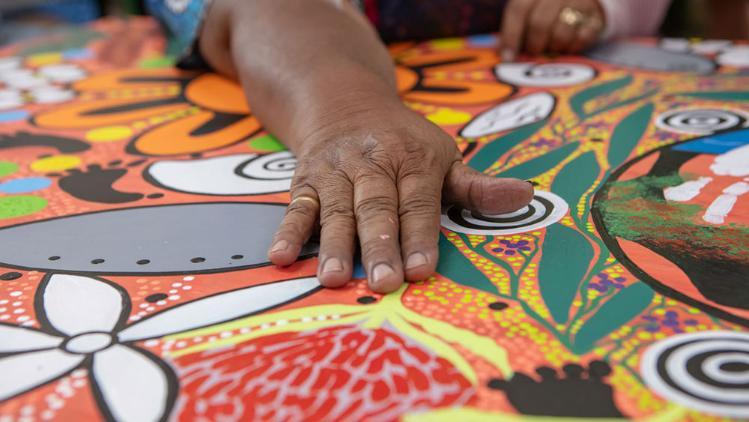
Annual reconciliation statements from our senior executive
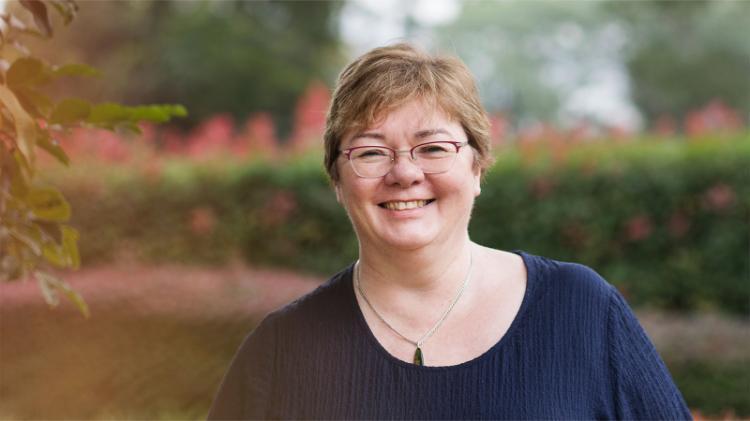
Deputy Vice-Chancellor and Vice-President Research and Sustainable Futures (Interim)
(Written as the Executive Dean of The Faculty of Science Medicine and Health)
The Faculty of Science Medicine and Health is committed to reconciliation with Indigenous peoples of Australia, and we believe that the continued implementation of the UOW Reconciliation Action Plan (RAP) in 2022 was a significant first step in achieving this goal. Our RAP achievements to-date include piloting a new Indigenous research internship program, supporting global mobility for Indigenous students, enabling the next generation of Indigenous doctors, championing Indigenous HDR students, growing our educational offerings and enhancing our understanding of Indigenous procurement. In addition, the faculty have recruited 7 identified positions that include professional and academic roles at diverse career stages, spanning both health and science disciplines and committing to cultural awareness training for our Faculty Senior Executive. We understand that reconciliation is a journey that requires ongoing sustained effort, and our ongoing and future RAP initiatives represent our continued commitment to this journey.
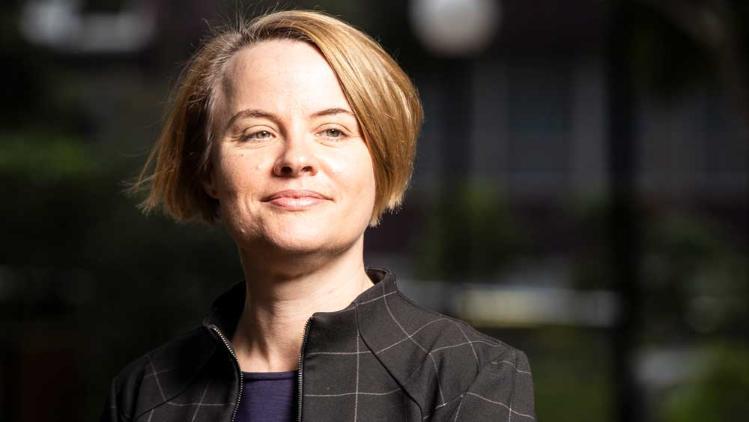
Executive Dean, Faculty of the Arts, Social Sciences and Humanities
The Faculty of the Arts, Social Science and Humanities embraces reconciliation as everybody’s business. We commit to action on reconciliation becoming more embedded within our everyday practices of learning, teaching, researching and connecting.
Each year we join together to mark Reconciliation Week and NAIDOC Week with colleagues across the University and community. As a faculty committed to education and young people, we are also active in Indigenous Literacy Day and National Aboriginal and Torres Strait Islander Children's Day as part of our yearly calendar. In our ‘business as usual’ we continue to embed Indigenous knowledges and pedagogies in curriculum, recruit Indigenous academics and support PhD completion, and engage Indigenous providers and suppliers in our procuring of goods and services. We continue our learning through the AIATSIS Core Cultural Learning modules, with colleagues from across the faculty working through the modules and supporting discussions. We incorporate reconciliation action into the ways we work every day with a RAP working group in each School, RAP discussions as a standing item on meeting agendas and Acknowledgement of Country at gatherings, through posters and signage. We continue to work as a community partner, and as a space for community to meet on campus. We are changing our spaces and places to make them more welcoming. The Early Start building now features the UOW Acknowledgement of Country and Flame Tree signage at its entrances, and we created a First Nations Space in Building 19. Two major projects funded in 2022, helped to develop knowledge about our Indigenous art collection and promote a Workplace Culture Supportive of Aboriginal and Indigenous Communities in Early Start.
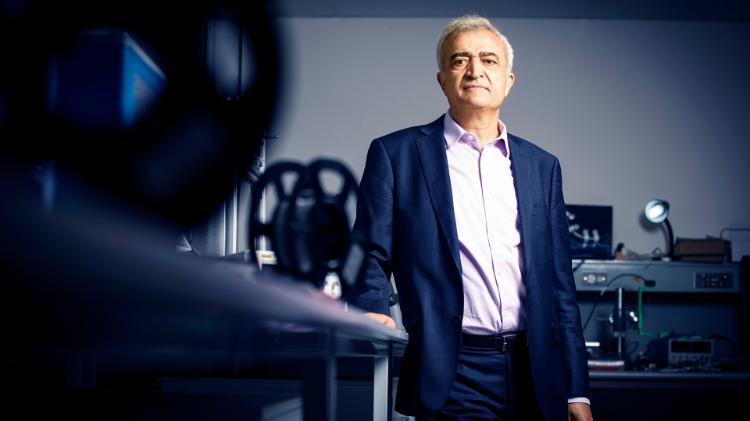
Executive Dean, Faculty of Engineering and Information Sciences
Reconciliation within the Faculty of Engineering and Information Sciences (EIS) is about recognising the impact of our actions and contributing to all dimensions of reconciliation. We understand that everything we do requires us to authentically engage with, acknowledge, and maintain cultural connection with the Aboriginal lands on which we study and live.
Our commitment to reconciliation is now formally embedded in the faculty’s Equity, Diversity and Inclusion strategy and action plan, launched in October 2022 and on our webpage. As part of this initiative, the faculty has committed to establishing an annual prize to recognise the achievements of our Indigenous students. In 2022, EIS was committed to expanding our partnerships with local Aboriginal and Torres Strait Islander communities and to continue embedding Indigenous knowledge, wisdom, and perspectives within our teaching and research programs. We understand that this journey takes time and will continue to work towards this in 2023. We investigated opportunities to create pathways into higher degree research programs and a summer scholarship for Indigenous students. We will continue to take every opportunity to learn from traditional knowledge holders and to deepen our understanding and connection to Country and the true history of Australia through engagement in the AIATSIS-Core: Cultural Learning modules. We will continue to focus on creating pathways for study and employment for Aboriginal and Torres Strait Islander peoples, on empowering Indigenous businesses through procurement, and on sharing our reconciliation journey within EIS and our local community. We value and celebrate the contributions of our Indigenous staff and students and are committed to creating a culturally safe and supportive community within EIS where all staff and students feel welcome and respected.
Reconciliation Action Plan
It is our mission to create a movement of Aboriginal and Torres Strait Islander allyship at UOW, that will hold a shared vision for the future.